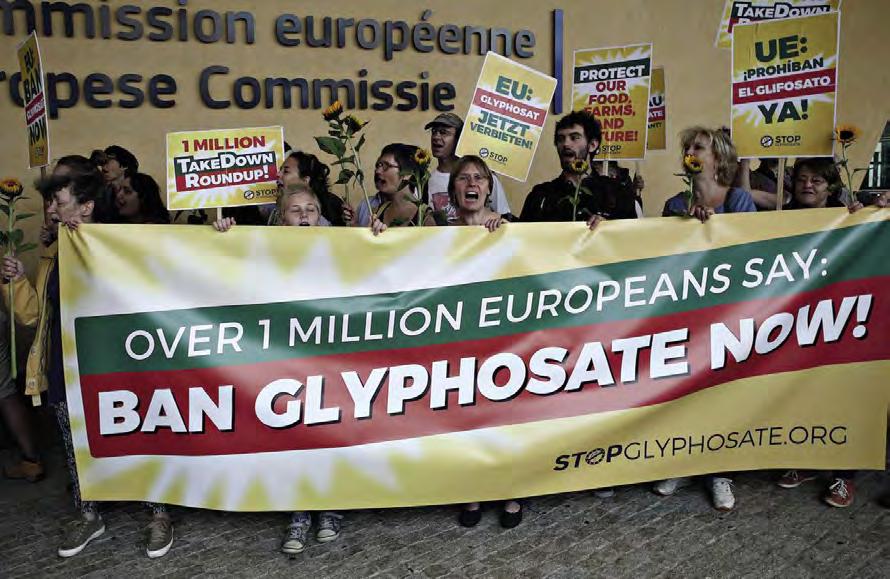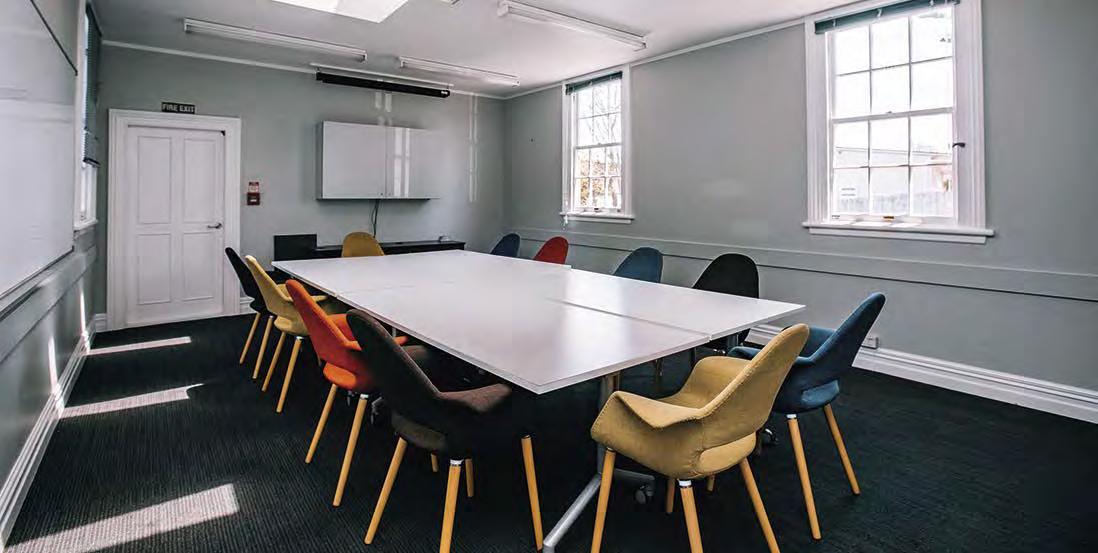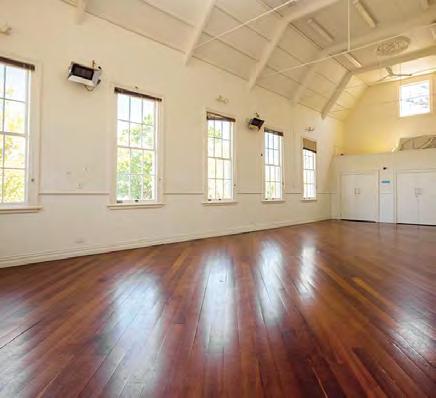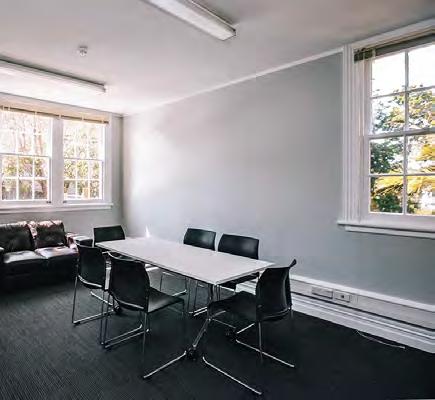
9 minute read
JOHN ELLIOTT: LOCAL NEWS
from PONSONBY NEWS '21
JOHN ELLIOTT: Maybe we will eliminate Delta if we’re lucky
I haven’t written about Covid-19 before.
Maybe I’m biased and nervous, because at nearly 83, and it’s old blokes like me who are most vulnerable. But I’m glad we have a compassionate PM who has said several times now that she will not sacrifice our health on the altar of GDP. The health of New Zealanders will be the number one priority, and healthy New Zealanders is a prerequisite for a vibrant economy.
Despite the right wing angst of the Hoskings of this world, our economy has fared well too. As Jacinda has said, it’s no good having thousands with Covid-19 who are clogging our hospitals, some dying, and all unable to work. The economy will suffer badly. The selfishness of these critics knows no bounds.
Just this week Richard Prebble, good old neo-liberal, suggested putting Steven Joyce in charge. That would be like handing the border keys to Mr Delta, and giving control to the coronavirus.
Of course we will have difficult decisions to make post lockdown; when and how and who do we open the border to?
I think too many of us have not realised that there will be no return to the old normal, and neither should there be.
The planet is on fire, species extinction is rife because of habitat destruction, yet we still refuse to adjust our life style. Although the neo-liberal experiment of the 80s and 90s has been proved a dismal failure, it was so deeply rooted it has been hard to dig out.
I was at a meeting where Roger Douglas, architect in New Zealand of the neo-liberal revolution, was present, and although only discussed in passing, it was clear Douglas had no regrets, and wished he had been able to go even further before Lange called for a cup of tea. I understand, his National Party successor, Ruth Richardson, notorious for her self-styled ‘mother of all budgets’ also has no regrets. In Britain, Thatcher also crowed, “this lady is not for turning”, and stuck to her guns as long as she could.
The important questions are at what point will we open the border if Covid-19 looks like it’s been eliminated, or secondly, if the virus is still active in the community and not eliminated at all, what then?
So as of today, Monday 30 August, so far so good. Today’s total case number was 53, a big drop from yesterday’s 83. The PM was careful not to gloat at the 4pm stand up, but was cautiously optimistic that we have reached a plateau, possibly even beginning to fall. Have we peaked, she was asked? “We hope so,” she replied. The R number was down below 1 which was very encouraging. Less than one means one case is infecting fewer than one person. Delta has a reputation for an R value of 5 or 6.
The PM thanked Aucklanders for their heavy lifting for the whole country, and urged us to continue our vigilance and respect the lockdown rules.
There remains one tricky situation. This virus has hit seven essential workers, and the government is anxious for that number to remain very low. All essential workplaces are being assessed to see if tighter restrictions are needed to keep these workers safer.
The case history looks like this: Lockdown Wednesday 18 August Day 1-10 cases. The twelve days since have spawned the following new cases; 11, 10, 30, 21, 35, 41, 62, 68, 70, 82, 83 and today 53. That 53 looks a good number, but the government will be looking for 50, 40, 30 20 10 5, 5, 2, 2, maybe even 0 in coming days, before elimination can be claimed.
There are great hopes it can be achieved, and if it is, some doubters, especially across the Tasman will be silenced. Scott Morrison has not been a kind neighbour in recent days.
There remains the big follow up question. How does the border opening happen, who gets in, and how do we continue to protect ourselves while Delta, or even its successor, is rampant worldwide? High levels of vaccination should help the number of people who a Covid case passes the infection on to. (JOHN ELLIOTT) PN
www.covid19.govt.nz
positions amongst those opposing these plans, no trees should be removed at all, or yes, remove them, but plant seedlings under the existing trees to enable their growth before removing the exotics.
On the one hand, there is the issue of method of removal and replanting, which is similar in some ways to the Western Springs Forest controversy. Once again, the advice I have seen is that planting trees under the existing canopy will make it more difficult for the plantings to thrive and put them at more risk of damage when the exotics are removed - even by helicopter.
However, I believe this is a moot point. The fact is that local iwi own the Maunga and it is their choice as to what to do with their own property. In fact, it is perfectly within their rights to remove the trees and build housing for their people should they so choose, but instead they agreed in the Tamaki Settlement to make the Maunga available for all citizens of Tamaki Makaurau to use and enjoy for the enjoyment of green space and recreation. That gift of access does not carry the ability to decide what happens on the Maunga. Once again, the example of what can be achieved is Tiritiri Matangi island. Imagine oases of stunning native forest stands dotted across our city. I may not live to see its full realisation, but this vision from Iwi is a magnificent one and testament to their generosity towards our city, and the arrogance and belligerence of opponents has been staggering. Despite denials, the opposition to these plans are rooted in an archaic, racist attitude that Pākeha know best for Māori.
I celebrate protests against decisions made by a council that can be wrong and inefficient, but at some stage, those protests cross over from being constructive to being obstructionist. There comes a point where fighting against any change at all is more damaging than the imperfect changes being made.
The principle of replacing exotic trees with natives should be encouraged, because in following that path there is a marvellous future - an urban ngahere full of natives nurturing our indigenous fauna. This is the future I want to see realised, not the retention of an archaic colonist ideal. (MARK GRAHAM)
JOHN ELLIOTT: Memo to Council - Please take your own advice
Item K iv of the resource consent to fell the pines. “(We) recommend that all weeding in the park be chemical free.”
It’s getting ridiculous. I keep banging on about banning the proven carcinogen, glyphosate, from the whole Auckland Council region, but it goes on and on. Other activists have been campaigning against Round Up containing glyphosate for much longer than me.
The above statement from the resource consent agreed to by the Waitematā Local Board by four votes to three, called for chemical free weeding. Let’s hope they stick to their own plan.
Even our very own Environmental Protection Authority (EPA) is having a cautious rethink. They have called for submissions from the public on the use of glyphosate - the manufacture, importation, and patterns of use of glyphosate in this country, as well as information on the availability of alternatives, and any impacts on Maori.
However, they go on to say, “we have no evidence that risks associated with using glyphosate, or its hazardous nature, have changed.”
The EPA still needs to open its eyes to death from cancers, and from the facts around court cases implicating Monsanto and now new owner Bayer, in multi-million dollar suits. Bayer must be regretting ever buying glyphosate from Monsanto.
As I have alleged before in a Ponsonby News article, our EPA takes its cue from the US EPA, which has been implicated in questionable collusions with the manufacturers, Monsanto. I have also quoted the seminal book, ‘The Silent Spring’ by Rachel Carson, published in 1960, after which DDT was finally banned.
It also took years to prove how 2,4,D and 2,4,5,T produced by New Plymouth firm Ivan Watkins Dow was killing people, and it was finally banned. 2,4,5,T was a major ingredient of Agent Orange which decimated millions in Vietnam.
I take no pleasure in the thought of glyphosate persisting for too much longer. Consider this little pantomime from 2040.
“Remember that old guy John Elliott who raved on about the dangers of glyphosate in the Ponsonby News for so long in the early 2020s. Well he was right all along. I have a niece who has developed cancer, and the specialists have found that her family lived next door to a landscape gardener in a Northland town. The neighbour sprayed glyphosate like it was going out of fashion, which it clearly should have years ago."
“But glyphosate is banned isn’t it?"
“It is now, probably twenty years too late for my niece. It stays in the body and can manifest as deadly cancer years down the track."
“Why didn’t authorities listen to people like John Elliott 20 years ago?”
There are seven members of the Waitematā Local Board: Chair Richard Northey, Deputy Chair Alex Bonham, Adriana Christie, Kerrin Leoni, Graham Gunthorp, and Sarah Trotman. As we have seen this year, it takes only four of those seven to make momentous decisions.
I expect four will oppose further use of glyphosate, but I hope I’m wrong. I hope seven will bite the bullet, and vote for the health of all Aucklanders.
Come on local board, be an important part of history, and vote this carcinogen down. (JOHN ELLIOTT) PN

The Ponsonby Community Centre is situated at the Three Lamps end of Ponsonby, with ready access to fabulous cafes and restaurants, making it a perfect spot for your next meeting!
The Centre has professionally presented, medium and small meeting rooms; or larger hall spaces for seminars or workshops. Their board room, the Gluepot, is equipped with wifi, a projector screen, a white board, a smart TV, kitchenette and a projector (separate hire fee). The Centre will be open again when Auckland is in Level 2. PN
Contact them on info@ponsonbycommunity.org.nz for more information.













